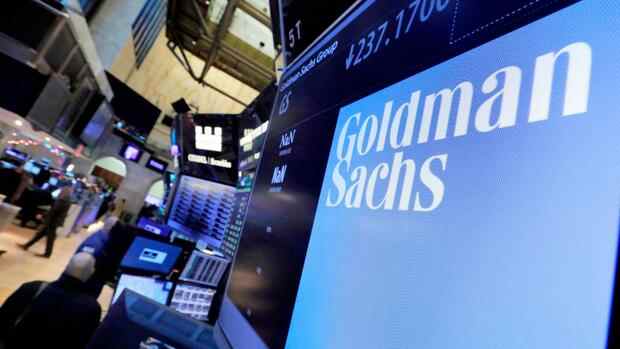The major US bank is withdrawing from Spac deals.
(Photo: dpa)
Denver The investment bank Goldman Sachs wants to stay away from the business with Spac IPOs in the future. The Wall Street Institute was one of the biggest players in the market during the pandemic, when the space was booming. But the US Securities and Exchange Commission (SEC) is planning a series of new regulations that banks also want to make more responsible.
This has long led to great uncertainty in the financial world. “We are reducing our exposure to the Spacs business in response to the changing regulatory environment,” said a spokeswoman. First, the financial services provider Bloomberg reported on the process.
Citigroup withdrew from the area a few weeks ago.
Spacs are viewed as backdoor IPOs. A shell company is listed with the aim of taking over a company and thus making it easier for it to go public. The shell company, in turn, collects money from investors itself and has two years to find a takeover target. If this fails, the money is returned to the investors.
Top jobs of the day
Find the best jobs now and
be notified by email.
In recent years, start-ups such as the flight taxi company Joby and electric car manufacturers Nikola and Lordstown Motors have gone public. However, shareholders quickly lost interest after the boom ended, because those companies will not generate any sales for many years to come. There have also been cases of fraud. The SEC has launched investigations into Nikola and Lordstown, among others. The SEC has also targeted the social network of former US President Donald Trump, which went public via Spac in December.
The stock exchange supervisory authority is now considering making not only the initiators of the Spacs, known as sponsors, more responsible, but also their investment banks, which will advise them in the complex process and help them find takeover targets. “But it can take months or years for the rules to be spelled out. Banks are reluctant to operate in this gray area. The risk of ending up in trouble with the SEC is simply too great for some,” said Georgetown University finance professor James Angel.
Spac boom is waning
Banks traditionally receive five percent of the proceeds from a Spac IPO in fees. However, 3.5 percent of this is only paid when the shell company has taken over a private company. This process is called de-spac. Since the banks have a strong interest in a successful takeover, the SEC wants to classify them as classic underwriters, similar to a conventional IPO. They should therefore also assume liability if false or misleading information is provided in the process.
Months ago, SEC boss Gary Gensler signaled that he wanted to take more action at Spacs. Coupled with the US Federal Reserve’s (Fed) interest rate hikes clouding the outlook for tech stocks and speculative stocks in general, the market has contracted sharply.
In the first quarter, only 78 Spacs went public in the US, raising on average only half as much money as a year earlier. In the first quarter of 2021, the height of the Spac boom, around 300 shell companies went public and raised nearly $88 billion from investors, more than all of 2020.
More: America’s largest bank JP Morgan is suffering from the consequences of the Ukraine war. Other institutes will also come under pressure.
